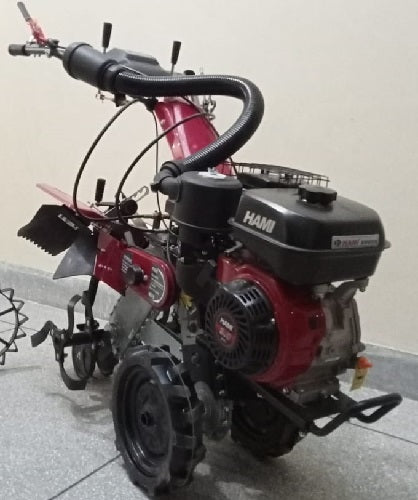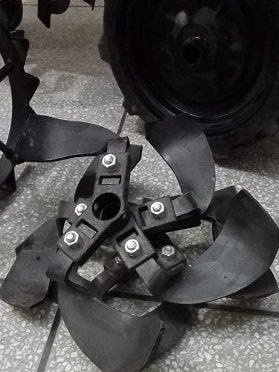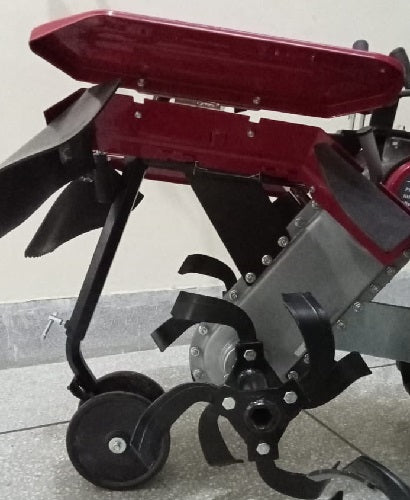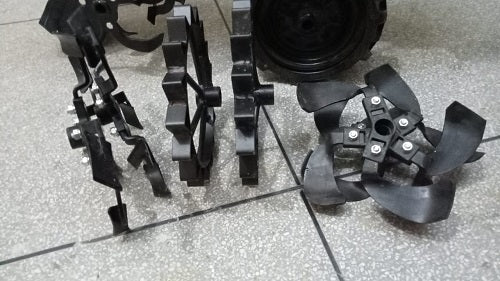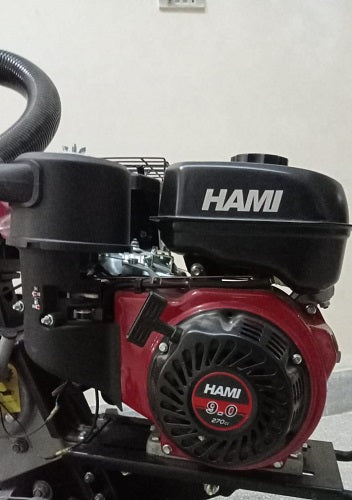1
/
of
5
Hami Hardware Store
WM 660 A 9 Hp
WM 660 A 9 Hp
Regular price
Rs.285,000.00 PKR
Regular price
Sale price
Rs.285,000.00 PKR
Unit price
/
per
Shipping calculated at checkout.
Couldn't load pickup availability
"Tilling" and "earthing up" are both important agricultural practices that involve soil manipulation for different purposes in farming and gardening. Here's a brief explanation of each term:
- Tilling: Tilling refers to the process of mechanically breaking up and turning over the soil in order to prepare it for planting. This practice is also known as plowing or cultivating. Tilling has several benefits, including:
- Loosening the soil: Breaking up compacted soil helps create a better environment for root growth and water penetration.
- Weed control: Tilling can disrupt the growth of weeds by uprooting them and burying their seeds.
- Aeration: Tilling improves soil aeration, allowing oxygen to reach plant roots more easily.
- Incorporating organic matter: Tilling can mix organic materials, like compost or manure, into the soil, improving its fertility and structure.
- Earthing Up: Earthing up, also called hilling or ridging, involves heaping soil around the base of plants, particularly crops like potatoes, to achieve specific goals. This practice is usually performed after the plants have started growing and is beneficial for:
- Protecting tubers: In the case of potatoes, earthing up helps protect the developing tubers from sunlight, which can turn them green and make them toxic.
- Promoting root growth: Adding soil around the base of plants encourages the growth of lateral roots, which can result in a stronger and more stable plant.
- Improving drainage: Earthing up can enhance water drainage away from plant stems, reducing the risk of rot.
Both tilling and earthing up are important techniques in modern agriculture and gardening, contributing to successful crop growth and optimal plant health. However, they should be carried out with proper understanding and consideration of the specific requirements of the crops being cultivated, the soil type, and the overall farming practices being employed.
Share
